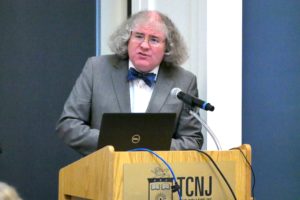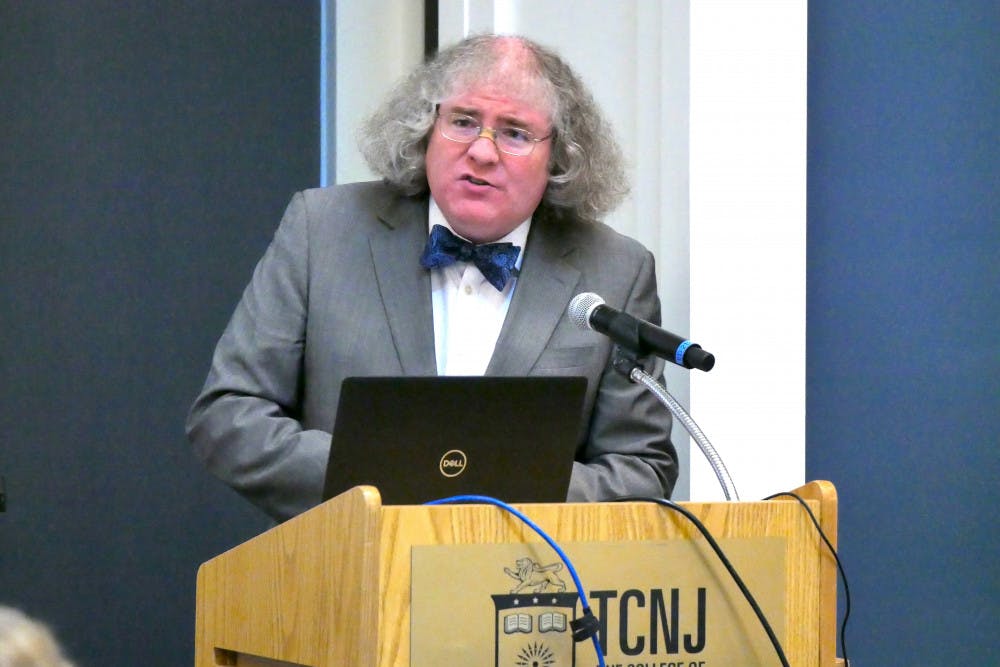By Kalli Colacino
Production Manager

The English department welcomed students and faculty to the Education Building Room 212 to celebrate William Shakespeare’s birthday on April 23 at 12:30 p.m.
As part of the celebration, students could grab a slice of pizza, a beverage and a variety of snacks before settling in. Among those attending was College President Kathryn Foster, who sat in to listen to the guest speaker, Professor Jack Lynch.
Lynch, the current chair of the English department at Rutgers University-Newark, teaches 18th-century literature and has studied Shakespeare since the 1990s. The talk of the day was centered around the idea of how to tell Shakespeare’s story.
The celebration took place on the day that is widely regarded as Shakespeare’s birthday. However, Lynch opened his lecture by stating the bad news that resulted in laughter from the audience — no one knows if the day is actually the playwright’s birthday.
With no records from Shakespeare’s lifetime detailing his exact birthdate, Lynch said it is uncertain when he was born.
Lynch then discussed how information about Shakespeare’s life was not widely known until many years after he had died.
“Today, I’d like to focus on some of the earliest attempts to tell Shakespeare’s story, and the cultural needs that story has served,” Lynch said. “Shakespeare was born in the 16th
century, died in the 17th, but he didn’t get a life until the 18th century.”
Lynch explained how there is a desire to learn more about Shakespeare’s life. He also said that based on research and records, Shakespeare most likely had an uneventful life. In short, his life does not tell the most thrilling story.
“We have literary people, artists, musicians and so on,” he said. “What do they do with their lives? Busy writers, painters and musicians spend their days pretty much sitting down at home, writing, painting, composing. That doesn’t make for the most thrilling stories. We demand that these stories will provide insights into the works we care about.”
After concluding his speech, Lynch opened the floor to student and faculty questions. Foster participated by asking a question of her own to Lynch.
“I am curious about in your own background, given what you know and what you’ve done, if you’ve made any attempts to write like Shakespeare?” Foster asked. “If so, what forms that took?”
Lynch responds to Foster’s question by mentioning how he has not written like Shakespeare, but he has been inspired by his works.
“I have resisted that temptation,” Lynch said in response. “I published a scholarly book about forgery and, man, I felt powerful temptations to slip a little forgery in there.”
“I liked how Lynch talked about the cultural implications,” said freshman English major Brianna DiGeronimo. “This event is a good way for English majors and others to learn more about Shakespeare.”







